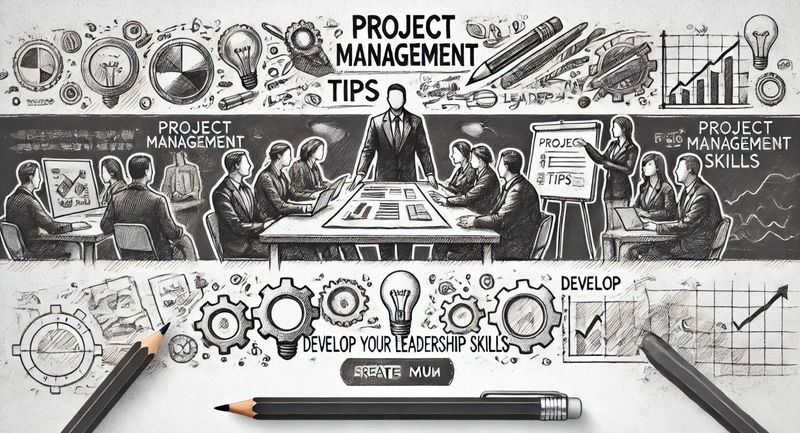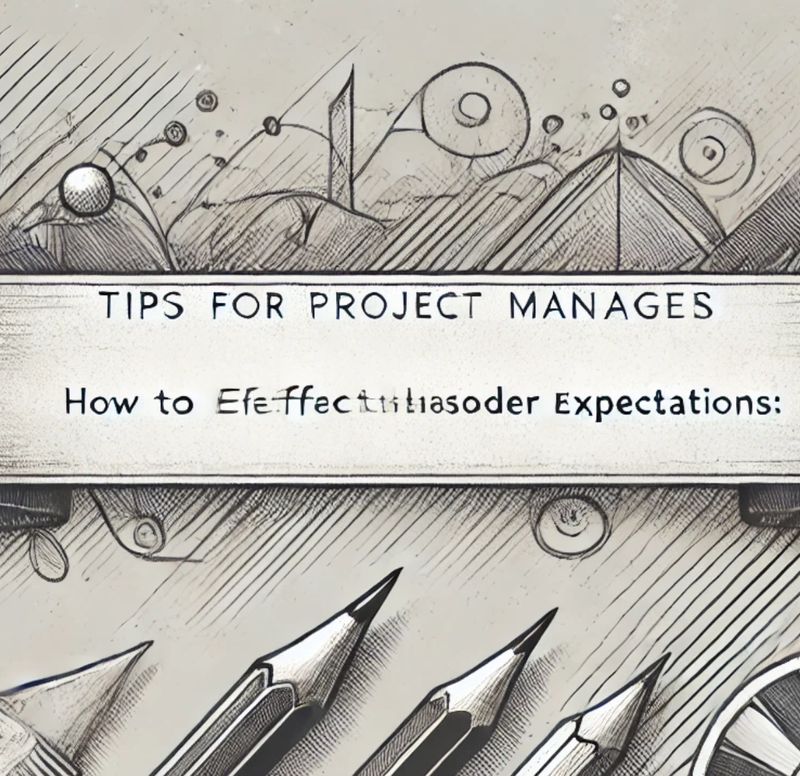How to Develop Leadership Skills for Effective Project Management

Understanding the Core of Leadership in Project Management
To become an effective project manager, it is important to understand that leadership goes beyond simply overseeing tasks and timelines. Leadership in project management is about inspiring, motivating, and empowering your team to achieve shared goals. This requires a blend of vision, communication, and empathy.
First and foremost, vision is key. Great leaders are those who can see the bigger picture and convey it clearly to their team. This means setting realistic yet ambitious goals and aligning every member with the project's mission. When team members understand the overall purpose, they are more likely to be engaged and proactive.
Effective communication is another cornerstone of leadership. A project manager must be adept at both conveying and receiving information. This includes providing clear project updates, outlining expectations, and fostering an open environment where team members feel comfortable sharing their ideas and concerns. For example, maintaining an open-door policy encourages team members to approach you with questions or suggestions, strengthening trust and collaboration.
Empathy plays a crucial role in leadership as well. Understanding the needs and challenges of your team can make a significant difference in how you guide them through the project lifecycle. When team members feel seen and valued, their morale and productivity naturally increase. A simple way to practice empathy is by checking in regularly and offering support when needed, whether it’s help with workload management or simply lending an attentive ear.
Building Trust and Accountability
Developing leadership skills as a project manager involves fostering a culture of trust and accountability. Trust is built when team members know they can rely on their leader to be honest, fair, and supportive. This means consistently following through on commitments and being transparent, even when things don’t go as planned. For example, if a project hits an unexpected roadblock, a strong leader will communicate this openly, explain the impact, and involve the team in discussing potential solutions.
Accountability goes hand-in-hand with trust. As a project manager, you need to set an example by taking responsibility for your actions and decisions. This includes acknowledging mistakes and learning from them. Demonstrating accountability shows your team that it’s okay to take risks and learn from failures, fostering an environment where innovation can thrive.
To build trust and accountability among your team, start by creating clear roles and responsibilities. This helps prevent confusion and ensures everyone knows what is expected of them. Additionally, holding regular project reviews can keep everyone aligned and offer opportunities for constructive feedback. A strong example of this is conducting weekly check-ins where progress is evaluated, and any challenges are addressed collaboratively.
Developing Emotional Intelligence and Adaptability
Effective project leaders must also develop emotional intelligence (EI). This is the ability to recognize, understand, and manage your own emotions, as well as those of others. Emotional intelligence involves self-awareness, self-regulation, motivation, empathy, and social skills, all of which contribute to building stronger relationships with your team.
Self-awareness means being in tune with your strengths and areas for improvement. Project managers who are self-aware are better equipped to handle stress and make informed decisions. For instance, if you know that tight deadlines make you anxious, you can proactively implement strategies to manage this, such as time-blocking or delegating tasks more efficiently.
Adaptability is another critical trait. Project timelines and priorities can shift rapidly, and a good leader must be able to adjust without losing momentum. This involves being open-minded and flexible in finding solutions. A practical way to demonstrate adaptability is by remaining calm under pressure and guiding your team through changes with clear action plans and encouragement. An example of adaptability could be revisiting project timelines when new client requirements arise, ensuring that everyone understands the adjustments and feels prepared to meet the revised objectives.
Motivating your team through change can be achieved by emphasizing the positive aspects of adaptability. Celebrate small wins and remind your team of their capabilities and past successes. This reinforces a resilient mindset that helps them navigate future challenges more effectively.
Developing strong interpersonal skills is equally important. Good leaders excel in active listening, which means giving full attention to the speaker, acknowledging their message, and responding thoughtfully. When a team member voices a concern, validate their feelings and work with them to find a constructive solution. This not only resolves immediate issues but also strengthens the leader-team relationship for future collaborations.
Practicing Continuous Learning and Mentorship
Leadership development is an ongoing process that requires dedication and a commitment to learning. The best project managers are those who continually seek ways to expand their knowledge and refine their skills. This can be achieved through attending workshops, obtaining relevant certifications, and keeping up with industry trends. For example, enrolling in a leadership-focused course or participating in webinars on project management best practices can provide valuable new insights.
Being a mentor to your team is another way to foster leadership skills. Sharing your knowledge and offering guidance helps build trust and shows that you are invested in their professional growth. A helpful practice is organizing knowledge-sharing sessions where team members can learn from one another’s experiences and expertise. This collaborative environment not only enhances team skills but also demonstrates your commitment to their success.
Providing constructive feedback is another mentoring tool. When giving feedback, be specific and focus on both strengths and areas for improvement. For example, instead of saying “You need to be better at meeting deadlines,” try “I’ve noticed that the last two tasks were delayed. Let’s discuss ways to manage time more effectively.” This approach helps your team feel supported and understood, motivating them to improve without feeling criticized.
Lastly, a strong leader acknowledges the importance of work-life balance. Encouraging your team to take breaks and prioritize their well-being can enhance overall productivity. By modeling this behavior, you set a standard that respects boundaries and promotes a healthy work environment. An example of this is reminding your team to disconnect after work hours and scheduling regular team-building activities to strengthen team dynamics and reduce burnout.


